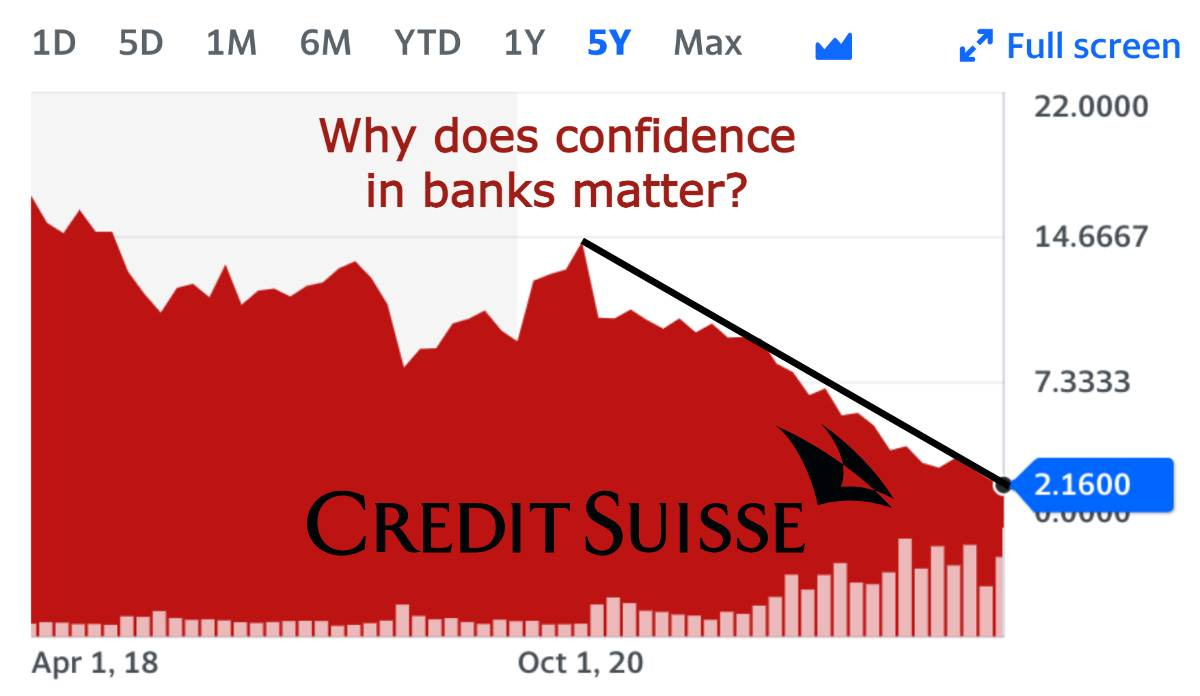Why does confidence in banks matter?
That's a serious question. Confidence shouldn't matter, but it does, and until we fix that, we'll just get more failures. You can take that to the bank.
Have you ever wondered why our banks constantly face shortfalls in cash and confidence? How can banks, which ostensibly are in the easiest business ever — they literally create money from nothing — become bankrupt of both cash and trust? For most Americans, the answer is as scary as it is enlightening. Here’s the difficult truth: Our modern banking system is not just a house of cards, but a tower of cards built on a foundation of lies.
Surely I’m overstating it for effect, you say. I’m not. The financial sleight-of-hand our system is built on starts first and foremost with self-deception. Anyone who understands how bank finance works has to view it through a lens that is not unlike the suspended disbelief we have when we go into a movie. We all know the superhero or villain isn’t really throwing cars. But we willingly believe what’s on the screen for the sake of our own entertainment. Similarly, we all know our money isn’t really there when we deposit it at a bank, but as long as the l…




